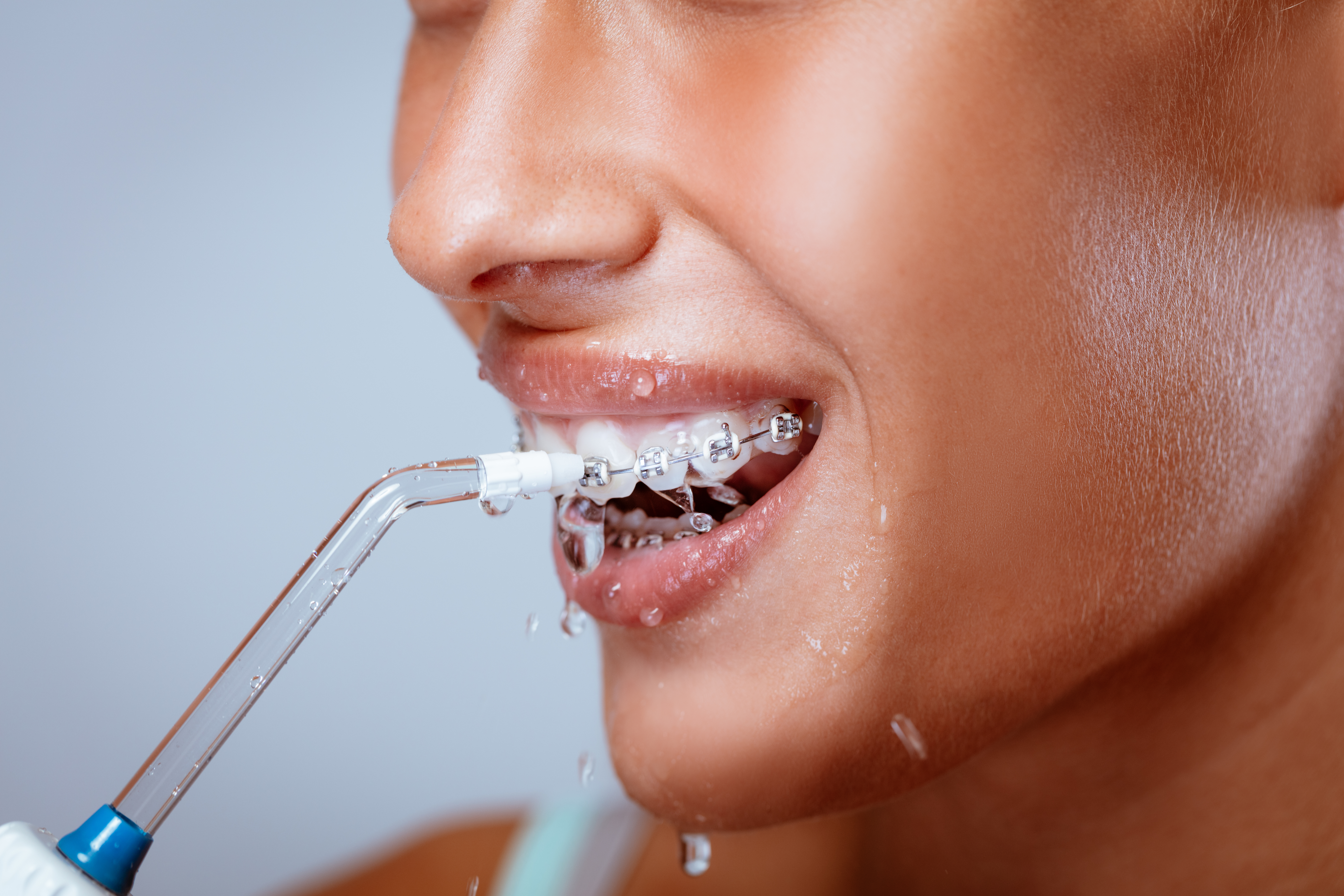A Look At Water Flossers

Dr. Ashraf weighs in on water flossing as part of your oral hygiene routine. (Source: WebMD, What is a Waterpik?, written by Alicia Barney, medically reviewed by Evan Frisbee, DMD, October 31, 2021, https://www.webmd.com/oral-health/what-is-waterpik ).
Alicia Barney talks about how a water flosser can be used to improve dental health. Barney says that while a water flosser cannot replace a toothbrush, it is still an excellent choice for maintaining good oral hygiene.
Dr. Ashraf agrees to this! According to Dr. Ashraf, “a water flosser is incredibly useful for maintaining good health of your teeth. However, it is recommended to brush two times a day. For better effect, the water flosser should either be used before or after teeth brushing.”
Dr. Ashraf also recommends that people experiencing any signs of dental issues must consult their dentist without delay to find the best solutions to take care of their teeth and mouth.
Using the water flosser in the right way
In the original article, Alicia Barney talks about how to use a water flosser the right way. Alicia Barney says that a person needs to keep lukewarm water in the reservoir of the flosser and then take its tip to their mouth. This will help ease discomfort and avoid creating a mess.
Dr. Ashraf is in agreement with the article. They say, “the best way to floss is by holding the tool at a 90-degree angle to your teeth and then spraying it. It is recommended to start at the back of your mouth and then slowly work your way around. As the article rightfully states, one should pay maximum attention to the spot where the gums meet the teeth and the gaps between each tooth.”
Emptying the flosser can maintain hygiene
In the article, Alicia Barney claims that once you are done flossing, removing any extra water from the reservoir is critical. This prevents the bacteria from growing inside.
According to Dr. Ashraf, “preventing the growth of bacteria in your water flosser’s reservoir is very important. It would be best if you change the water daily and give it a thorough cleaning every few months to prevent an accumulation of bacteria and mineral deposits. You don’t want to ingest and spread mold into your body, gums, and teeth.”
The original article also talks about the importance and working of water flossing in great detail. Alicia Barney – the original article’s author, explains how a water flosser works. Alicia Barney mentions that just like your usual flossing, water flossing also helps you get rid of those tiny and irritating food particles stuck between the gaps of your teeth.
Why is dental floss important?
As per the original article, water flossing effectively cleans your teeth and is excellent for reaching stubborn areas. However, it would be best if you did not get rid of your regular dental floss. Dr. Ashraf also recommends the same.
According to Dr. Ashraf, “it is still imperative for people to floss daily for a good dental cleaning and oral hygiene. Even if you want to try water flossing, you should not remove your regular dental floss.”
Dr. Ashraf mentions, “There are different kinds of floss on the market. Knowing about them might make you comfortable and more likely to use them in your oral hygiene routine.”
Why is it important to floss?
Dr. Ashraf also talks about why it’s so important to floss. Dr. Ashraf shares, “flossing can help eliminate plaque below the gum line, which can eat away tooth enamel and turn into tartar. It can also lower the chances of cavities, sore gums, and inflamed, red gums. If you want to reduce your gum disease chances, there are no questions about it. Just add floss to improve your dental cleaning regime.”
Dr. Ashraf also shares, “using water as a light force is not a new method to remove debris and act as a helpful floss. Commonly dentists recommend a saltwater rinse as a great way to remove stuck debris and reduce minor inflammation. As the article states, although these are effective methods, they should not replace the act of brushing and traditional flossing. If you are experiencing difficulty, it is always best to consult your dentist to recommend the best oral hygiene methods that are best suited for you and your oral condition.”
